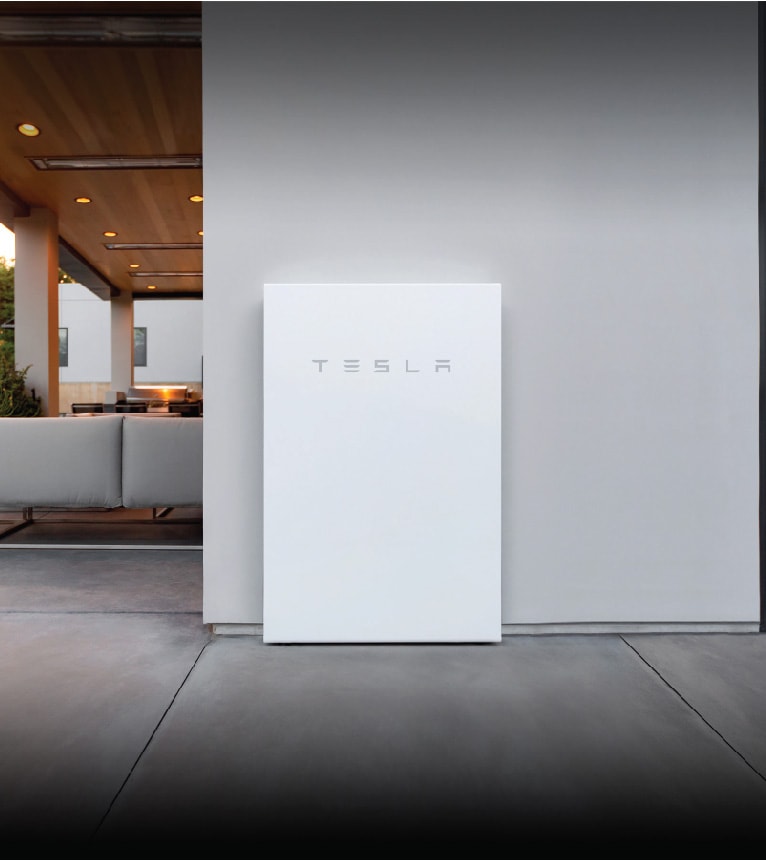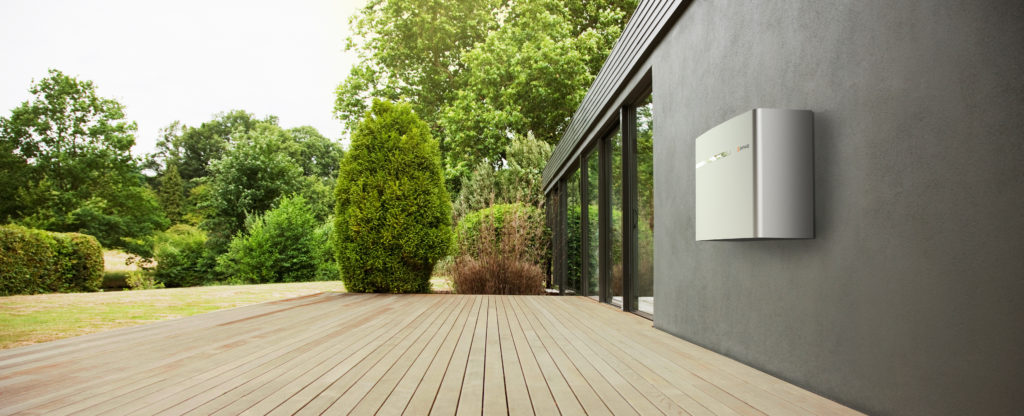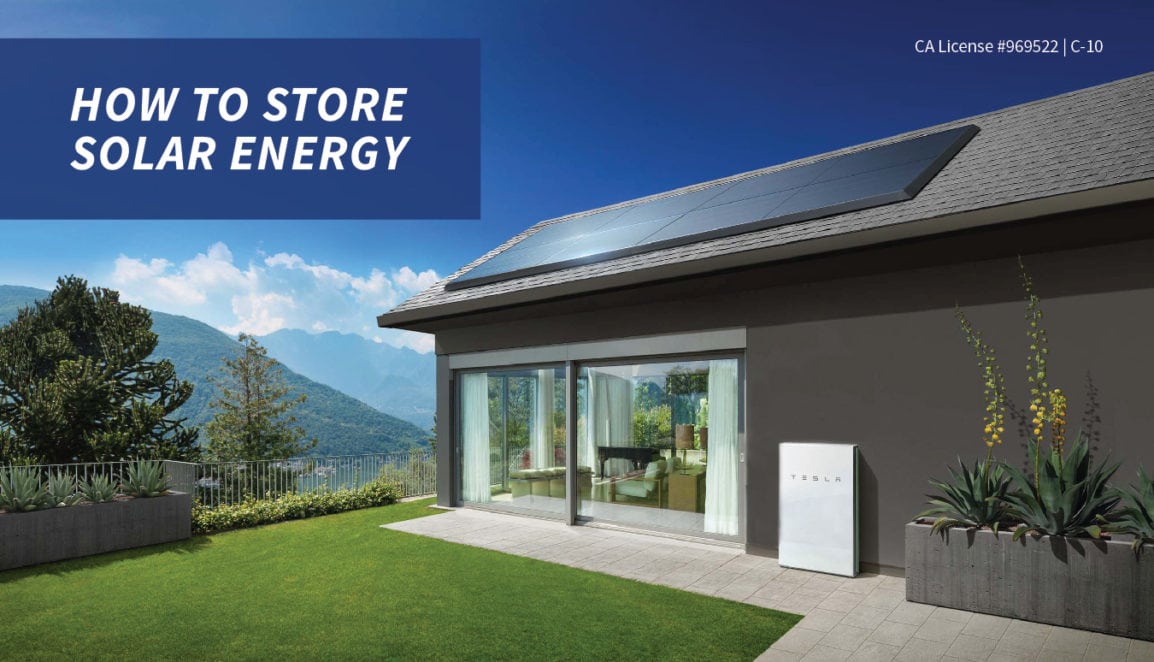An important thing to consider before installing solar is how you will store your solar energy.
Solar panels provide tons of benefits, such as reducing or eliminating energy bills and providing a clean source of energy. However, it’s worth noting that your solar panels only work during daylight hours when sunlight is available and harvested to create energy to power your home or business.
Without a method to store any unused or excess energy, you may end up relying on the grid during peak usage hours (such as at night). This diminishes your potential energy savings and reduces the efficiency of your panels. Luckily, there are ways to store your solar energy! In this article, the experts at A.M. Sun Solar will break down the benefits to storing solar energy and the best ways to do it.
What are the benefits of storing solar energy?

Filling in the gaps.
Cloudy days, routine maintenance work, or other brief disruptions in your solar energy output are to be expected from time to time. Storing your energy can help fill in the gaps that these occurrences produce, preventing you from having to rely on grid energy.
Balancing electric loads.
If you don’t have a way to store your solar energy, it will have to be used at the moment it’s generated. This isn’t a problem during the day when sunlight is readily available. However, nighttime hours are when peak energy consumption takes place. Most people are home from work, watching television, cooking dinner, and heating up or cooling their homes to sleep comfortably. Without sunlight readily available, solar energy can’t be used during these times unless you have a home backup battery. Storing your solar energy with a home battery allows an energy reservoir to be charged during the day when generation is high and demand is low, and then released at night when generation is low and demand is high.
Energy resilience
We’ve all experienced a power outage due to inclement weather, accidents, or wildfire. While the energy grid is continuously vulnerable to these disturbances, the ability to store your solar energy eliminates your dependence on the grid, greatly reducing your susceptibility to outages.
Which battery is right for you?
Now that you understand the many benefits of storing your solar energy, the next step is to choose how you will store that energy. The most popular, cost-effective, and efficient way to store your solar energy is by installing a home backup battery. There are several from which to choose:
Lithium ion batteries are the go-to for solar energy storage. They are relatively expensive, but are becoming popular for their long lifespan and lack of maintenance requirements.
Lead acid batteries are currently the cheapest option for solar energy storage. If budget is your main concern, these may be the best option. However, these batteries tend to be short-lived, require regular maintenance, and aren’t as efficient as other options available.
Lithium iron phosphate batteries are easily accessible but have a lower capacity and shorter lifespan than lithium ion batteries.
You understand the benefits and you know the different options available to you, but how exactly do solar batteries work?

Some battery systems simply store energy for backup power, but if you’re using solar panels and a home battery for self consumption, it will follow three basic steps.
1. Produce. Your solar panels collect sunlight and turn it into DC energy, or direct current energy. Your system’s inverter then converts that energy into AC energy. Alternating current energy is the type of energy that your home and electronics use.
2. Store. After the energy produced is converted to AC, it will power your appliances and devices as it flows throughout your home. Energy that isn’t used will be directed to the battery for storage. If you don’t have a battery or the battery is fully charged, the energy will be sent to the grid in which case you may be able to benefit from net metering. Net metering is when your utility company allows you to receive credits on your electricity bill when your panels produce excess power that gets routed to the grid.
3. Power. When you need more energy than your solar system is producing or are experiencing a temporary disruption, your battery will automatically discharge and your home can use stored energy instead of relying on grid energy.
All things considered, solar batteries are something that A.M. Sun Solar highly recommends. When you’re working with us during the process of purchasing a new solar energy system for your home or business, our experts will help you understand the ins and outs of solar battery technology and assess your energy needs, utility rates, and solar output to determine and explain to you just how much you could benefit from solar system storage.
If you’re ready to make the switch, fill out the form below to schedule an in-home solar consultation with one of our expert consultants!

